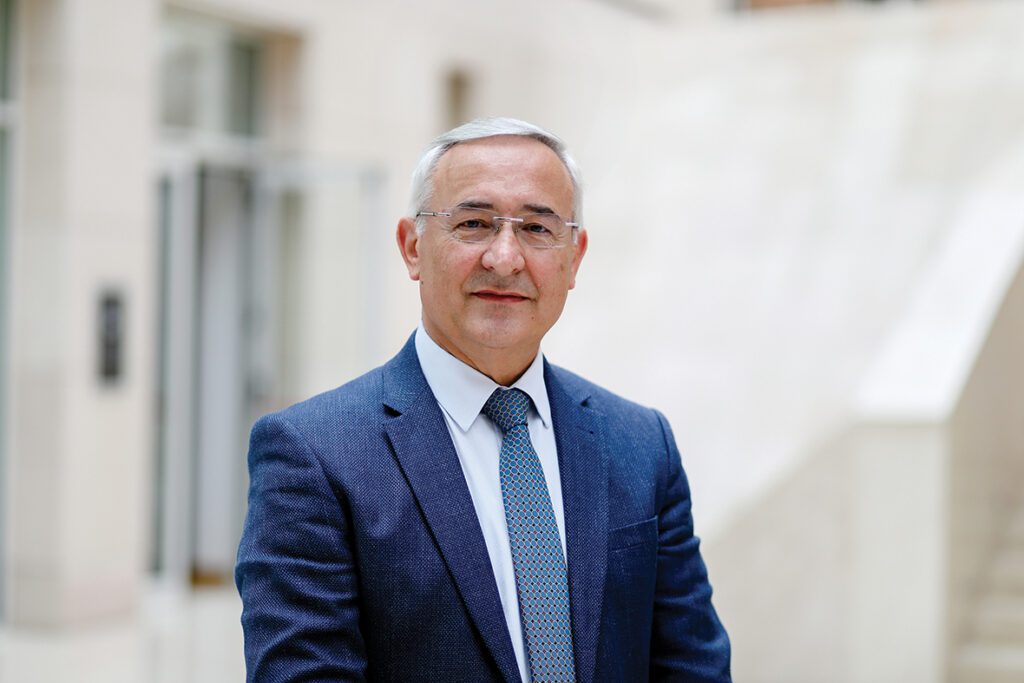Spiro Brumbulli: Cash reduction, financial guarantee to be required when granting construction permits

The Bankers Association has suggested that in all new constructions, when permission is granted, a financial guarantee should also be required. That is, a part of the investment cost should be blocked in a bank account, for example, 50% of the amount. This would serve not only to control the sources of money for the construction, but would also protect the buyers, ensuring the completion of the building
The banking sector has historically been one of the promoters of reducing the use of cash. cash in economics.
Spiro Brumbulli, secretary of the Albanian Association of Banks, tells “Monitor” that the banking industry has been consistently consistent in its demands for reducing the use of cash, since 2016.
“We have identified that, beyond the investments that banks should make to accompany the client, without the need for him to physically come to the bank, the reduction of physical cash should also be enabled.
“We have also linked this to the fight against informality and liberation from the excessive costs of physical money,” says Mr. Brumbulli.
According to a World Bank study, the cost of money cash is approximately 2% of Gross Domestic Product. Mr. Brumbulli says that the first measure suggested by the Banking Association is to set a ceiling for cash payments by individuals. Such a ceiling has not yet been set.
“Our suggestion is that this ceiling could be in the amount of 60-70 thousand lek, but neighboring countries have it at the level of 500 euros.
Even a ceiling of 50 thousand lek, the new minimum wage that will be established next year, would be acceptable.
Further, from the moment we set a limit on payments cash, we must provide an alternative channel for making payments in amounts greater than the above limit.
So, every person who wants to buy a good or service should have an alternative to physical money. The customer should have the certainty that there will be a payment option, even without having cash or if the value of the goods or services will be greater than the legal ceiling.
For this reason, together with the Bank of Albania, we prepared a strategy to achieve instant payments.
We thought that the alternative could be cards, but perhaps this was not an acceptable choice for all parties, due to the costs and problems with the necessary coverage with the relevant infrastructure.
With the study that was conducted, in collaboration with the World Bank, at the National Payments Committee, we came to the conclusion that this alternative could be instant payments, which is expected to be implemented next year.
Once this alternative channel is active, the government should make it legally binding for every business to enable the provision of electronic payments, in addition to physical cash.
This will give citizens the freedom and security to use electronic payments and reduce the amount of cash”they carry with them,” says Mr. Brumbulli.
Another issue, according to him, is that at least a POS should be installed at all public service counters where payments are made, so that citizens are not forced to pay only with physical cash.
“I can understand that offering online payments through e-albania may require time and investment, but at least it can be ensured that for over-the-counter payments there is an alternative for non-cash payments.” cash.
The other issue we have suggested is that in all new constructions, when permission is granted, a financial guarantee should also be required. So, a part of the investment cost should be blocked in a bank account, for example, 50% of the amount.
This would serve not only to control the sources of money for construction, but would also protect buyers, ensuring the completion of the building.
However, from what we have heard, the government has found another solution and will stop the sale of buildings before the issuance of ownership certificates,” he says.
Another discussion is whether the time has come for banks to apply higher commissions for transactions with cash, so that citizens are more oriented towards electronic channels.
According to Mr. Brumbulli, in the last 30 months alone, banks have invested over 9 billion lek (90 million euros) in technological infrastructure.
“When banks invest so much to offer this convenience to the customer, why should we accept the creation of flows and queues for actions in cash, creating upfront costs for the bank.
So, ways must be found so that the public understands that there is a cost, because I often find from public reactions that a large portion of people do not understand this.
So, cash”It is not something that should always be taken for granted and eternal. We used it when we had no other alternatives, but now that we have these alternatives it is normal to try to reduce it,” he says.
Regarding the objective of building an economy without physical cash, Mr. Brumbulli says that today there are examples and models of countries where most transactions are carried out in alternative, non-cash ways.
“If an economy manages to carry out more than 50% of transactions without cash, then it can be defined as a cashless economy. Then, there are countries that reach more than 90%, like the Scandinavian ones, but this is related to the level of development.”
Let’s not forget that the most developed countries today are thinking about digital currencies.
Since we are in a process of integration and development, Albania may soon consider such a thing. So, all trends are towards the digitalization of payments and we cannot go another way.
“So, we have to successfully implement instant payments, so that we are ready to have a comprehensive alternative to cash,” he says.